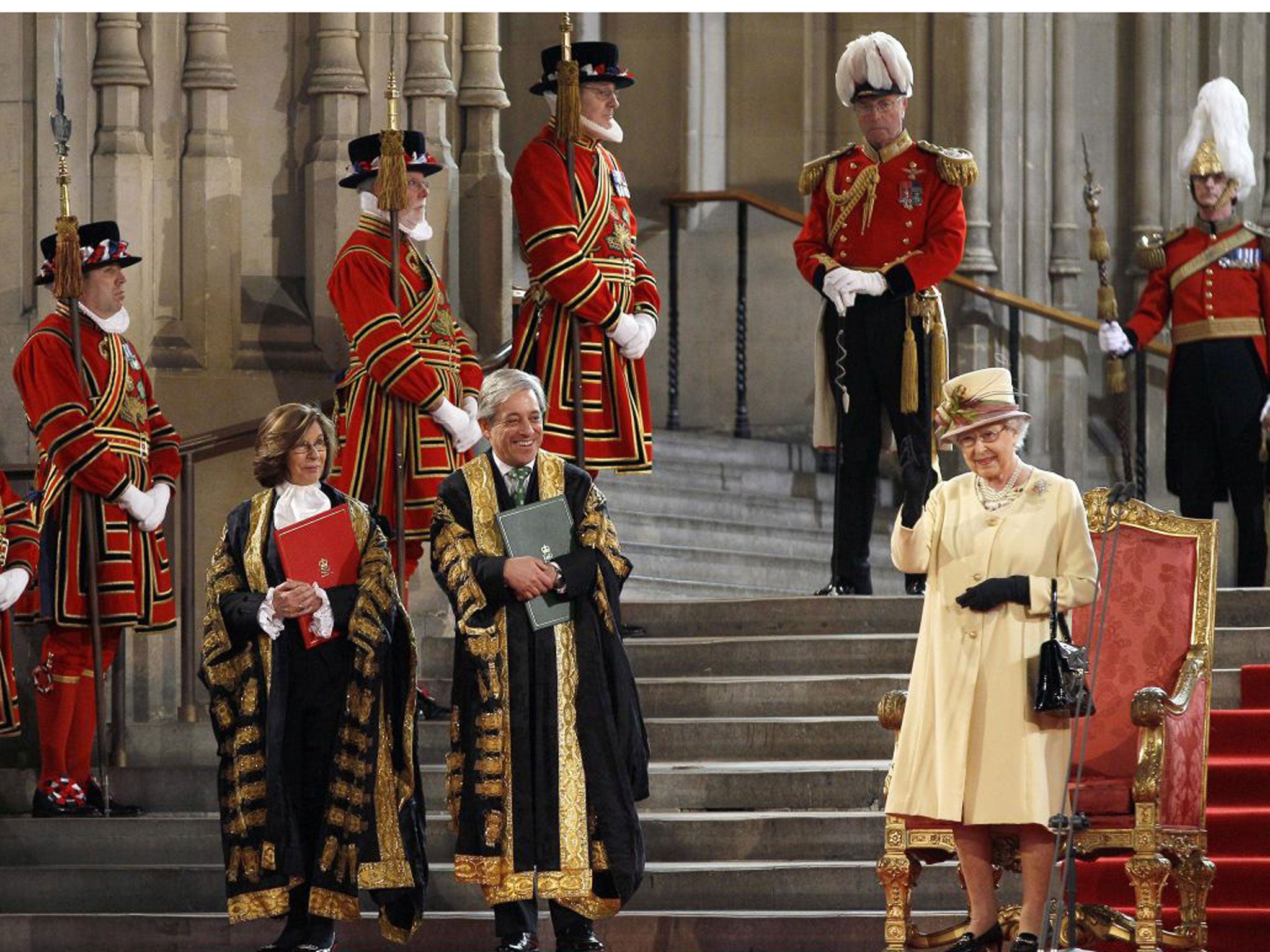Beyond the Commons: John Bercow calls for new age of e-democracy
Speaker flouts convention with public claim that Parliamentary politics is becoming ‘irrelevant’

Your support helps us to tell the story
This election is still a dead heat, according to most polls. In a fight with such wafer-thin margins, we need reporters on the ground talking to the people Trump and Harris are courting. Your support allows us to keep sending journalists to the story.
The Independent is trusted by 27 million Americans from across the entire political spectrum every month. Unlike many other quality news outlets, we choose not to lock you out of our reporting and analysis with paywalls. But quality journalism must still be paid for.
Help us keep bring these critical stories to light. Your support makes all the difference.
Parliament must be reformed to end centuries of “arrogant” control by ministers and make Britain’s democracy fit for the 21st Century, the Speaker of the Commons has said.
John Bercow said in future ministers should not have control over what the House of Commons debated. The idea of MPs being elected to constituencies based on geography would become “increasingly hard to sustain”, he added. Mr Bercow also suggested the UK should follow the model of recent democratic elections in Estonia which allowed voters to cast their ballot on the internet or secure mobile phones. He said that unless Parliament was able to adapt to changing world brought about by mass communication “we may go the way of Bebo or MySpace” and become increasingly irrelevant to people’s lives.
The Speaker, who by convention is not expected to stay into controversial areas of public life, made his remarks during a speech to Parliamentarians in New Zealand. But his implicit criticisms of the way the current system of Parliamentary democracy works led to a withering put-down from one senior minister – who told The Independent it was “very bad manners to offer a criticism of one’s own Parliament when abroad”.
However his comments were welcomed by other MPs including the chairman of the Political and Constitutional Reform Committee Graham Allen who said he had raised “very important ideas which needed to be addressed”.
In his speech on the “Future of Parliaments” Mr Bercow said that while he had tried to make the House of Commons more relevant to the public by calling ministers to answer the question of the day, there was a case for going much further.
“The single biggest change at Westminster with which I have been linked is the revival of the Urgent Question,” he said. “In my time in the Chair I have allowed numerous Urgent Questions and Parliament is much the more topical and hence more relevant for it. In the Parliaments of the Future, the issue will be not whether but what new should be discussed.
“The historic concept of departmental questions held at fixed, often lengthy intervals will be antiquated. We will have to be far, far more flexible about what is debated and when across our whole timetable. And the dictum that the Government of the day should have control over virtually the whole of that business will seem astonishingly arrogant.” He added: “Deference is not a quality which will have much purchase in the democracy to come.” Mr Bercow also suggested the old idea of constituencies based upon geography needed to be re-assessed and MPs must be given more resources to deal with communications coming not just from their constituents but other interest groups as well.
“The level of e-dialogue between representatives and the represented is staggering,” he said. “The traditional notion of there being but one concept of a constituency, based on geography, will become increasingly hard to sustain. Issue or cause constituencies will matter just as much as territorial constituencies.”
Mr Bercow said he believed elections would have to be reformed to make them more relevant to people’s lives. “Estonia became the first nation in the world to permit online voting for its 2007 national parliamentary elections,” he said. “In 2011 almost one quarter of all votes were cast via the internet or chip-secure mobile phones. Whereas most European countries have a problem with participation in elections, particularly amongst younger adult citizens, Estonia is in a much stronger position.”
While Mr Bercow has won plaudits for some MPs for attempting to make Parliament more relevant he is disliked by many in his own party. They accuse him of favouring the Labour opposition and using the chair to grandstand and harangue ministers.
But Mr Allen said he supported Mr Bercow ideas and would go further – completely removing the control of Parliament from Government.
“What we need is a genuine separation of powers. If Parliament is to reform it needs to free itself from the shackles of Government.”
House moves: Bercow’s plan
* Introduce electronic voting via the internet and mobile phones for Parliamentary elections.
* Bring in a regular daily slot for MPs to debate pressing issues or question ministers.
* Re-think the traditional geographical constituency boundaries.
* Provide much more administrative support for MPs to deal with growing case work – and the rise of electronic communications.
Subscribe to Independent Premium to bookmark this article
Want to bookmark your favourite articles and stories to read or reference later? Start your Independent Premium subscription today.
Join our commenting forum
Join thought-provoking conversations, follow other Independent readers and see their replies
Comments